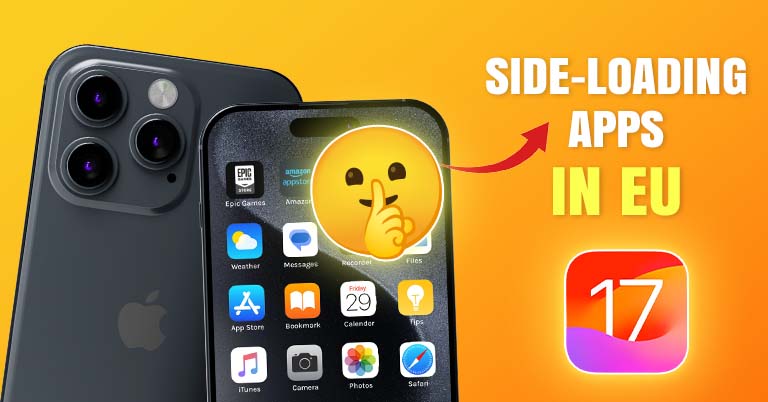
It looks like the European Union is not done getting Apple under its regulations. Initially, the EU mandated the transition from the lightning port to USB-C, followed by the adoption of RCS in iMessage. Even that wasn’t enough, and now iPhones are compelled to support sideloading with external app stores to comply with European regulations.
iPhone App Sideloading: Overview
What is sideloading?
Application sideloading is a way to install apps from external sources without the need for the device’s native distribution method (i.e., an app store). Which, in the case of iPhones, is Apple’s App Store.
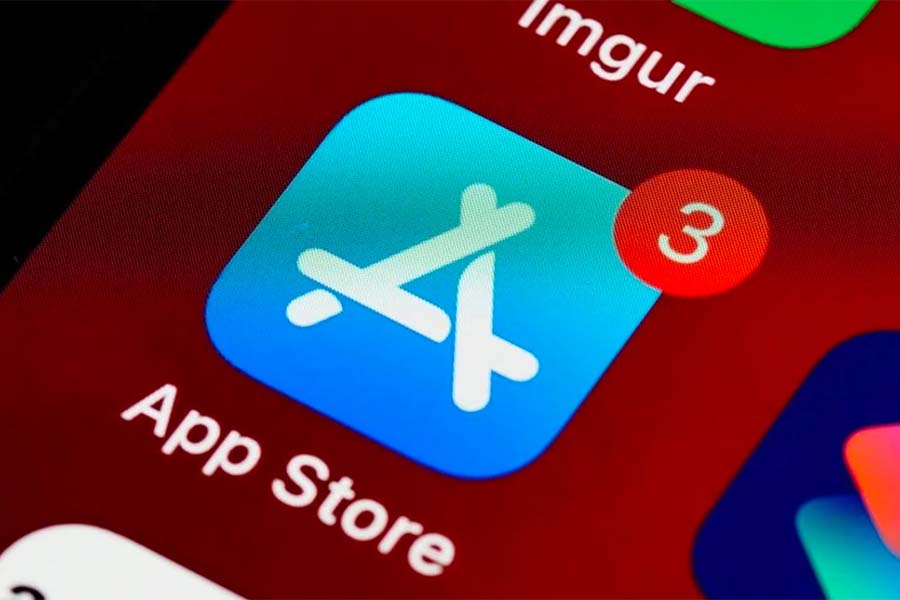
Previously, iOS users faced limitations, lacking the means to install apps from alternative app stores or a package installer. While sideloading on iPhones was possible, it was deemed much of a hassle.
- Also, read
Why didn’t Apple allow it before?
As you know, random apps can be a huge security threat to your device. The given application may be malicious and such, but most importantly, it might pose a privacy issue. Android does support sideloading, but it comes with the problems mentioned above. Even the ads bait you into installing malware on your device.
Hence, as gatekeepers of privacy, Apple implemented a strict app approval process for a secure iOS experience and didn’t allow any sideloading shenanigans officially.
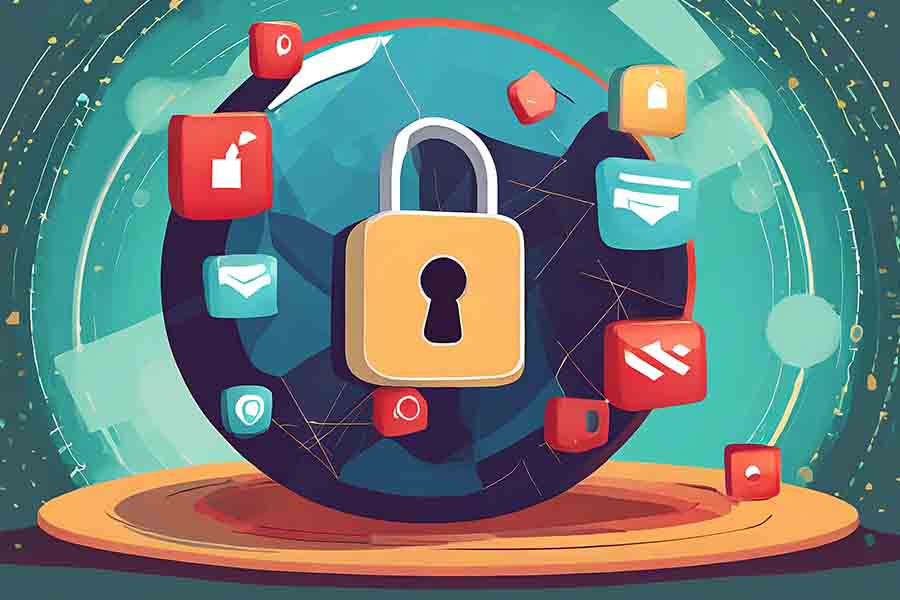
Apple’s “Highly Controlled System”
Now that the EU’s Digital Markets Act (DMA) necessitates sideloading, Apple will be launching a “highly controlled system” around it. They could go with a verification system similar to Mac that allows users to install apps outside the Mac App Store while remaining safe. Whatever their system is, the company might have found a way to make sideloading reliable.
What’s the Positive Side?
Even though there are several downsides to sideloading, the advantages just can’t be overlooked. For example, iPhone users will have broader application choices, not limited to the App Store. Not only that, the updates to the apps can be sent much quicker, as they won’t require approvals from the store.
Moreover, developers won’t have to pay 15 to 30 percent fees. This means that the app provider can increase the profit margin while decreasing the in-app purchase cost, ultimately benefiting the customer.
iPhone App Sideloading: Availability
As it seems, Apple will be releasing an update within the first half of 2024 that will support third-party stores to install software on iPhones in the EU. If any other countries amend a similar law to DMA, the feature could expand beyond the European Union.
- Meanwhile, you can check our iPhone 15 review.













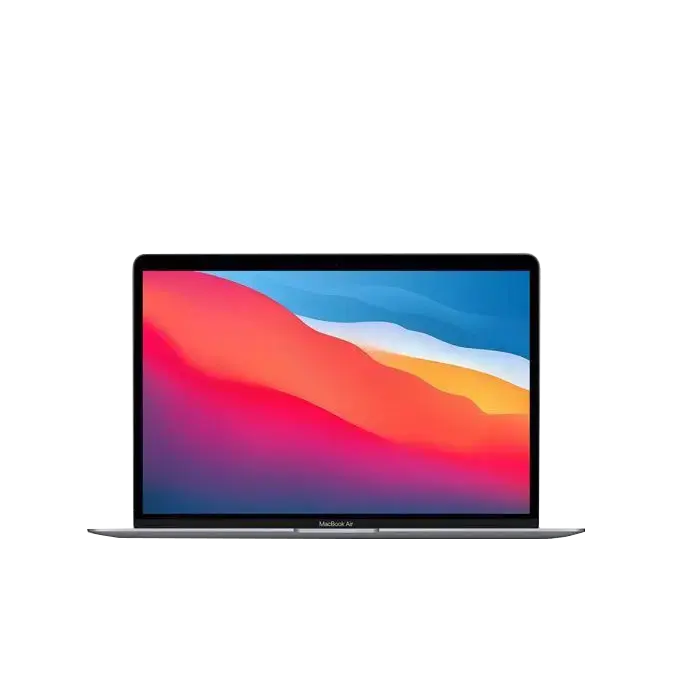
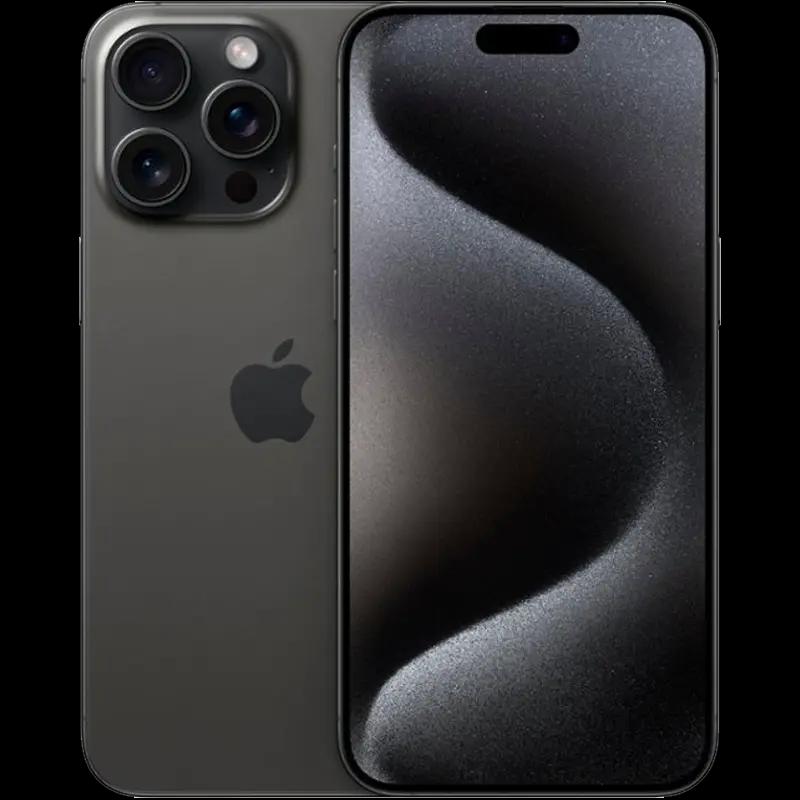

![Best Ultrabooks To Buy in Nepal 2024 [Updated] Best Ultrabook Laptops in Nepal 2023 - June Update](https://cdn.gadgetbytenepal.com/wp-content/uploads/2023/04/Best-Ultrabook-Laptops-in-Nepal-2023-June-Update.jpg)
![Best Gaming Laptops in Nepal 2024 [Updated] Best Gaming Laptops in Nepal 2023 - June Update](https://cdn.gadgetbytenepal.com/wp-content/uploads/2023/04/Best-Gaming-Laptops-in-Nepal-2023-June-Update.jpg)


![Best Mobile Phones Under Rs. 15,000 in Nepal [Updated] Best Phones Under 15000 in Nepal 2024 Budget Smartphones Cheap Affordable](https://cdn.gadgetbytenepal.com/wp-content/uploads/2024/03/Best-Phones-Under-15000-in-Nepal-2024.jpg)
![Best Mobile Phones Under Rs. 20,000 in Nepal [Updated] Best Mobile Phones Under NPR 20000 in Nepal 2023 Updated Samsung Xiaomi Redmi POCO Realme Narzo Benco](https://cdn.gadgetbytenepal.com/wp-content/uploads/2024/01/Best-Phones-Under-20000-in-Nepal-2024.jpg)
![Best Mobile Phones Under Rs. 30,000 in Nepal [Updated]](https://cdn.gadgetbytenepal.com/wp-content/uploads/2023/12/Best-Phones-Under-30000-in-Nepal-2024.jpg)
![Best Mobile Phones Under Rs. 40,000 in Nepal [Updated] Best Phones Under 40000 in Nepal 2024 Smartphones Mobile Midrange](https://cdn.gadgetbytenepal.com/wp-content/uploads/2024/02/Best-Phones-Under-40000-in-Nepal-2024.jpg)
![Best Mobile Phones Under Rs. 50,000 in Nepal [Updated] Best Phones Under 50000 in Nepal 2024 Smartphones Midrange](https://cdn.gadgetbytenepal.com/wp-content/uploads/2024/02/Best-Phones-Under-50000-in-Nepal-2024.jpg)
![Best Flagship Smartphones To Buy In Nepal [Updated] Best Smartphones in Nepal 2024 Flagship Premium Samsung Apple iPhone Xiaomi OnePlus Honor](https://cdn.gadgetbytenepal.com/wp-content/uploads/2023/09/Best-Smartphones-in-Nepal-2024.jpg)